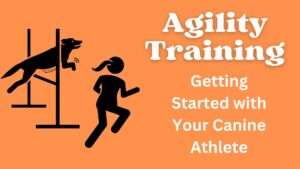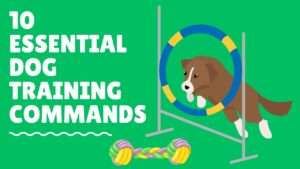Dog socialization is an essential aspect of responsible pet ownership. It lays the foundation for a well-adjusted and confident canine companion. But what exactly is dog socialization, and why is it so crucial? In this comprehensive guide, we’ll delve into the intricacies of dog socialization, exploring its importance, methods, challenges, and benefits.
Contents Overview
Preliminary Summary
Dog socialization is like giving your furry friend the keys to navigate the world with confidence and grace. It’s the process of introducing your dog to new experiences, people, animals, and environments in a positive and controlled way. By exposing your dog to a variety of stimuli from an early age, you’re helping them build the skills they need to interact with the world around them with ease. Think of it as laying down a solid foundation for your dog’s social and emotional well-being. Through patient and consistent socialization, you’re not only fostering good behavior, but also nurturing a strong bond between you and your canine companion. So, whether it’s a romp in the park, a friendly encounter with a neighbor’s dog, or a stroll through a bustling city street, every socialization opportunity is a chance for your dog to learn, grow, and thrive.
Understanding Dog Socialization
Dog socialization refers to the process of exposing a dog to various environments, people, animals, and experiences in a positive and controlled manner. This exposure helps dogs develop the necessary skills and confidence to interact appropriately with the world around them.
Why is Dog Socialization Crucial?
- Behavioral Development:
- Early exposure to different stimuli helps shape a dog’s behavior.
- Socialized dogs are less likely to develop anxiety, fear, or aggression towards unfamiliar situations or individuals.
- They learn to communicate effectively with other dogs, reducing the likelihood of conflicts.
- Reducing Fear and Anxiety:
- Socialization helps dogs feel more at ease in new environments.
- It prevents them from becoming overly fearful or anxious, leading to better mental well-being.
- Enhancing Safety:
- Socialized dogs are less likely to react aggressively out of fear when encountering new people or animals.
- They’re easier to manage in public spaces, reducing the risk of aggressive encounters or accidents.
- Promoting Positive Interactions:
- Dogs that are well-socialized tend to have more positive interactions with other pets and humans.
- This strengthens the bond between the dog and their owner, fostering a trusting relationship.
Methods of Dog Socialization:
Socializing your dog is an ongoing process that requires thoughtful planning and consistent effort. Here are some detailed methods to effectively socialize your furry friend:
- Early Socialization:
Early socialization is crucial for shaping your puppy’s behavior and temperament. It’s recommended to start socializing your puppy as early as possible, ideally between the ages of 3 to 14 weeks. During this critical period, puppies are most receptive to new experiences and are more likely to form positive associations.
- Positive Exposure:
Positive exposure involves introducing your dog to a wide range of stimuli in a positive and rewarding way. This includes exposing them to different people, dogs, sounds, surfaces, and environments. The goal is to create positive associations with these stimuli, helping your dog feel comfortable and confident in various situations.
- Gradual Exposure:
Gradual exposure is essential for preventing your dog from becoming overwhelmed by new experiences. Start with less intimidating stimuli and gradually expose them to more challenging ones. This gradual approach allows your dog to build confidence and adapt at their own pace.
- Structured Socialization Classes:
Enrolling your dog in puppy socialization classes or obedience training programs led by experienced trainers can be incredibly beneficial. These classes provide controlled environments where dogs can interact with others under supervision. They also offer structured training exercises to help reinforce positive behavior and social skills.
By employing these methods of dog socialization, you can help your furry companion develop into a well-rounded and socially confident member of the family. Remember to be patient, consistent, and always prioritize your dog’s safety and well-being throughout the socialization process.
Common Challenges in Dog Socialization
- Fear and Anxiety: Dogs, like humans, can experience fear and anxiety when encountering new situations or stimuli. This can manifest as trembling, hiding, or aggression, hindering their ability to socialize effectively.
- Lack of Exposure: Limited exposure to diverse environments, people, and animals during the critical socialization period (typically between 3 to 14 weeks of age) can impede a dog’s ability to adapt to new situations later in life.
- Negative Experiences: A single negative encounter with another dog or human can leave a lasting impact on your dog’s socialization journey. Traumatic experiences may lead to fear-based aggression or avoidance behaviors.
- Inadequate Socialization: Insufficient socialization during puppyhood or adolescence can result in behavioral issues such as fearfulness, reactivity, or aggression towards unfamiliar dogs or humans.
- Overwhelm: Introducing your dog to too many stimuli or unfamiliar situations at once can overwhelm them, leading to stress and behavioral problems.
- Owner’s Anxiety: Dogs are incredibly perceptive and can pick up on their owner’s emotions. If you’re anxious or tense during socialization attempts, your dog may mirror these feelings, making the process more challenging.
Overcoming Challenges in Dog Socialization
Now that we’ve identified the common hurdles in dog socialization, let’s explore strategies to overcome them and foster positive experiences for your furry companion.
- Early and Positive Exposure: Start socializing your puppy as early as possible, exposing them to a wide range of environments, people, dogs, and experiences in a positive and controlled manner.
- Gradual Desensitization: Introduce your dog to new stimuli gradually, allowing them to acclimate at their own pace. Break down socialization experiences into manageable steps to prevent overwhelm.
- Positive Reinforcement: Use treats, praise, and toys to reward your dog for calm and confident behavior during socialization encounters. Positive reinforcement helps create positive associations with new experiences.
- Professional Guidance: Seek guidance from a certified dog trainer or behaviorist, especially if you’re dealing with specific behavioral challenges or fear-based aggression. A professional can provide tailored strategies and support to address your dog’s needs.
- Patience and Consistency: Socialization is a gradual process that requires patience and consistency. Be patient with your dog’s progress and celebrate small victories along the way.
- Avoid Forceful Methods: Avoid using forceful or punitive methods during socialization, as they can exacerbate fear and anxiety in your dog, ultimately hindering progress.
Bottom Line
Dog socialization is a fundamental aspect of raising a happy, well-adjusted canine companion. By understanding the importance of socialization, employing effective methods, addressing challenges, and embracing its benefits, pet owners can ensure their dogs thrive in various social settings. Remember, the key to successful socialization lies in patience, consistency, and positive reinforcement. Start early, take it slow, and enjoy watching your furry friend blossom into a confident and well-mannered member of the community.
Key Takeaways
- Start Early: Begin socialization during the critical period of 3 to 14 weeks to take advantage of your puppy’s receptiveness.
- Positive Experiences: Create positive associations with new people, animals, and environments using treats, praise, and play.
- Gradual Exposure: Introduce stimuli gradually, starting with less intimidating experiences and progressing slowly.
- Diverse Exposure: Expose your dog to a variety of stimuli to promote adaptability and confidence.
- Structured Training: Consider enrolling in puppy classes led by experienced trainers for controlled socialization.
- Patience and Consistency: Socialization is an ongoing process that requires patience and commitment.
- Prioritize Safety: Monitor interactions closely and ensure your dog’s vaccinations are up-to-date.
- Long-Term Benefits: Proper socialization leads to a well-behaved, confident dog who enjoys diverse experiences.
- Bonding Opportunities: Socialization activities strengthen the bond between you and your dog.
- Seek Professional Help: Don’t hesitate to consult a professional trainer if needed.

Meet Kevin Behan, founder of Natural Dog Training in Newfane, Vermont. With decades of experience as a police-dog trainer and author, Kevin's pioneering methods revolutionize dog training.


































+ There are no comments
Add yours